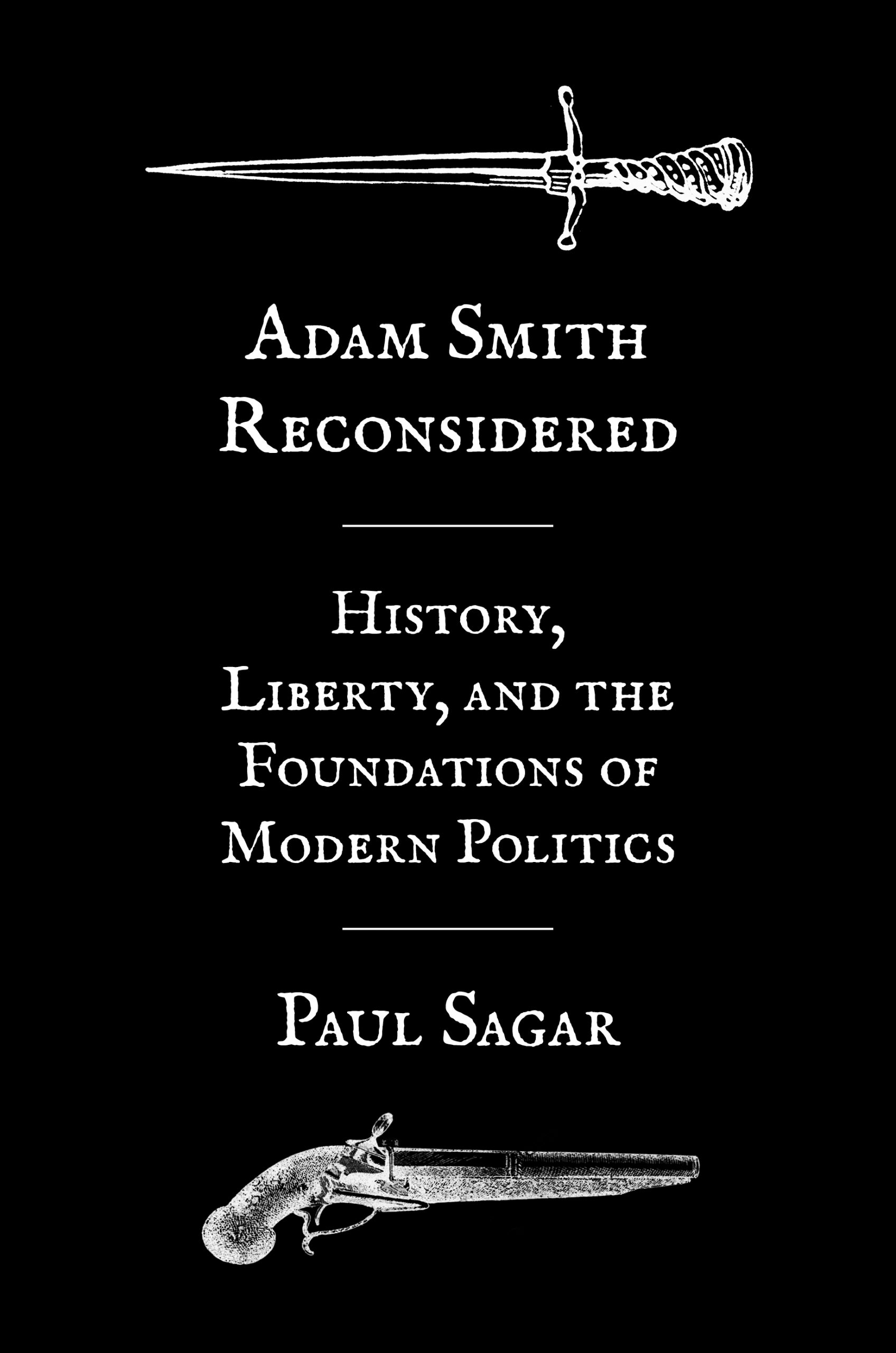Paul Sagar’s Adam Smith Reconsidered: History, Liberty, and the Foundations of Modern Politics offers an ambitious reinterpretation of Adam Smith’s intellectual legacy. The book challenges prevailing accounts of Smith’s political and economic philosophy, particularly the assumption that Smith harbored fundamental anxieties about market-driven societies. Instead, Sagar argues that Smith’s concerns lay less in moral corruption and more in the political dangers posed by commercial societies. The book is an essential contribution to modern debates on Smith, offering a historically grounded yet philosophically nuanced perspective.
Sagar organizes his study into five chapters, each tackling a specific dimension of Smith’s political thought.
Sagar begins by dissecting what he terms the ‘standard model’ of Smith scholarship. He critiques the widespread belief that Smith’s four stages theory constitutes a form of conjectural history. Instead, he argues that Smith used it as an economic model rather than a predictive framework for historical development (page 20). Sagar contends that many commentators have wrongly assumed that Smith believed in a linear progression of societies towards commercialism.
The second chapter examines Smith’s conception of liberty, moving beyond the standard republican interpretation. Sagar argues that Smith’s understanding of liberty aligns more closely with the notion of nondomination, derived from historical conditions rather than abstract philosophical principles (page 72). He differentiates Smith’s stance from contemporary republican theorists such as Quentin Skinner and Philip Pettit, suggesting that Smith saw the rule of law—not civic virtue—as the key mechanism for securing liberty (page 85).
One of the book’s most provocative arguments emerges in its analysis of Smith’s engagement with Jean-Jacques Rousseau. Many scholars have framed Smith as a measured respondent to Rousseau’s critique of commercial society. Sagar refutes this reading, arguing that Smith did not take Rousseau seriously as a thinker (page 120). Instead, Smith viewed Rousseau’s critique as intellectually weak, failing to engage with the empirical realities of history (page 138). This (third) chapter challenges long-standing interpretations that place Smith and Rousseau in dialectical opposition.
A key theme in Smithian scholarship is the question of moral corruption in commercial societies. In the fourth chapter, Sagar maintains that modern interpreters have overstated Smith’s concerns in this area. Rather than viewing commerce as inherently corrupting, Smith saw political mismanagement—particularly the alignment of economic power with political authority—as the real danger (page 165). Sagar carefully distinguishes between Smith’s concerns about elite behavior and a broader critique of commerce itself.
The final chapter turns to Smith’s famous critique of mercantilism and the influence of economic elites on government. Sagar frames Smith as a realist who understood the dangers of concentrated economic power but did not believe in an idealized republican counterforce (page 195). He argues that Smith’s Wealth of Nations should be read not as an economic libertarian manifesto, but as a work deeply preoccupied with the balance of power in political institutions.
Sagar’s reinterpretation of Smith is both refreshing and polemical. His main achievement is dismantling the Adam Smith Problem, the idea that Smith’s moral philosophy (in The Theory of Moral Sentiments) is fundamentally at odds with his economic thought (The Wealth of Nations). Sagar demonstrates that this supposed contradiction rests on a misunderstanding of Smith’s intellectual project. Smith was not torn between benevolence and self-interest; rather, he was developing a holistic view of social order where markets played an integral but politically contingent role (page 210).
One of the book’s strengths is its methodological rigor. Sagar carefully contextualizes Smith’s thought within the Scottish Enlightenment, drawing on sources that extend beyond standard economic interpretations. His engagement with historiography is particularly commendable—by distinguishing between historical reality and theoretical models, he clarifies many misconceptions about Smith’s views on commercial society.
However, the book is not without its weaknesses. Sagar occasionally overstates his case, particularly in downplaying Smith’s engagement with Rousseau. While it is true that Smith critiqued Rousseau’s speculative method, dismissing the Discourse on Inequality as intellectually weak (page 138), Sagar overlooks Rousseau’s influence on debates surrounding virtue, luxury, and civic participation. A more balanced account might acknowledge that, even if Smith rejected Rousseau’s conclusions, he still saw them as worth engaging with.
Additionally, while Sagar’s challenge to the standard model is compelling, he does not always fully explore its implications. If Smith was not concerned with moral corruption per se, but rather with political distortions of economic power, what does this mean for contemporary readings of his work? Does it suggest that Smith should be seen as a forerunner of institutional economics rather than classical liberalism? Sagar hints at these questions but does not fully develop them.
Despite these minor critiques, Adam Smith Reconsidered is an important work that forces scholars to rethink long-standing assumptions about Smith’s political philosophy. It challenges received wisdom with meticulous scholarship and clear argumentation. While some of its claims will spark debate—particularly regarding Smith’s engagement with Rousseau and his views on commercial morality—the book succeeds in shifting the terms of discussion.
For those interested in political economy, intellectual history, or the philosophical foundations of modern capitalism, Adam Smith Reconsidered is an essential read. It reaffirms Smith’s place not as a narrow economist, but as a sophisticated political thinker whose insights remain relevant for today.
‘Adam Smith Reconsidered: History, Liberty, and the Foundations of Modern Politics’ by Paul Sagar was published in 2024 by Princeton University Press (ISBN 978-0-69-123494-6). 248pp.
 Jan C. Bentz is a lecturer and tutor at Blackfriars in Oxford, with interests in how medieval metaphysics shaped modern thought. He also works as a freelance journalist.
Jan C. Bentz is a lecturer and tutor at Blackfriars in Oxford, with interests in how medieval metaphysics shaped modern thought. He also works as a freelance journalist.

